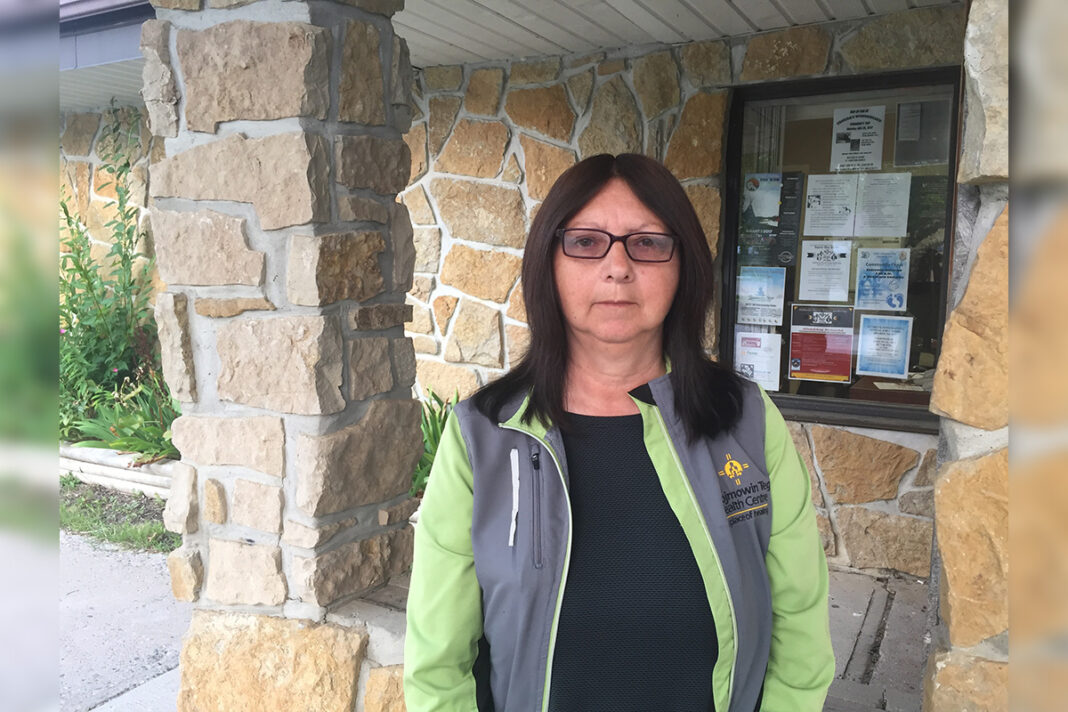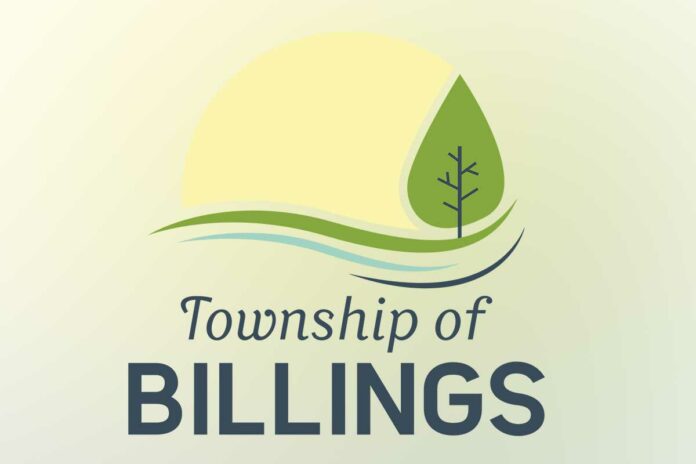MANITOULIN—The hearing before the Canadian Human Rights Tribunal on a complaint filed by the Indigenous Police Chiefs of Ontario (IPCO) has been delayed.
“How many of these types of hearings and Human Rights Tribunal delays do we have to go through?” stated Julian Falconer, a lawyer representing IPCO. “We have to respect the adjudicators’ decision, and ultimately respect authority of the adjudicator but that is something that has deeply frustrated my client who need to have these matters heard and dealt with now.”
Mr. Falconer said, “the system has to do better in giving time to expeditiously give access to Indigenous people. Shoppers (Drug Mart) and Loblaws can get a case to the Supreme Court within five years. But when it involves an Indigenous person, that’s a 40-50 year exercise. That’s a failure to do justice for Indigenous people and this current case is another example of this.”
“The federal government got an injunction so the court case has been delayed,” stated James Killeen, chief of police for the UCCM Anishnaabe Police Service. “They (federal government) filed an injunction indicating they need more time to prepare for the hearing.”
“So, the court hearing (which had been scheduled to begin January 6 and was scheduled for three weeks before the Canadian Human Rights Tribunal), has been delayed,” said Chief of Police Killeen. IPCO complaint revolves around arguments that Public Safety Canada has chronically underfunded Indigenous police services and unfairly restricts Indigenous police from providing protection to First Nations. The case had been initiated by IPCO in 2023, on behalf of Treaty 3 Police, UCCM Anishnaabe Police and the Anishinabek Police Service.
“First Nation Anishinabek Indigenous policing is an essential service,” stated Patsy Corbiere, tribal chair of the United Chiefs and Councils of Mnidoo Mnising. “Our police services need the same supports with the same budgets and able to provide the same services as the OPP (Ontario Provincial Police) or any other police services. Our officers need stability.”
A group of Anishinabek First Nation Indigenous leaders had participated in an IPCO press conference on December 5, arguing that Canada needs to negotiate honourably and provide the communities with police equal and equitable to what non-First Nations peoples have.
Some First Nations have declared a state of emergency in their communities due to violence, organized crime, addiction and mental health issues.
According to a ruling by the tribunal’s adjudicator IPCO was asked to provide more details last November, reported CBC News on January 7. The complainant added 14 new expert witnesses to its list and increased the number of documents in its submission from 89 to more than 800. Public Safety Canada asked for the hearing to be adjourned as a matter of fairness to allow it to review the information.
Mr. Falconer told The Expositor, “The adjudicator decision is that the delivery of the additional materials in November left Canada in an unfair position and that they needed more time to prepare.”
However, “Most of these documents the government had already received or commissioned in the first place,” continued Mr. Falconer. “It’s all materials that Canada already had. But this isn’t the first time we have been faced with stalling tactics. It’s distressing and frustrating and has led to severe crime indexes in some of the communities we are representing. It is the police services and the communities that are managing tragedy and safety in these communities. These are indiscriminatory policies towards Indigenous people, that they are not as entitled to safety as non-Indigenous people.”
The adjudicator, in his decision said, “the case is complex and affects 86 First Nations,” CBC reported. “The remedies being sought are systemic in nature and if awarded will have far-reaching impacts,” wrote Athanasios Hadjis. “Given these complexities, parties must adhere to the rules to enable everyone to know the cases that they must meet and be able to present their own cases fully and amply. The right to know the case to meet and the right to fully respond are the very foundations of natural justice and procedural fairness.”
CBC reported that Mr. Falconer unsuccessfully argued further delay is an abuse of process. “It is important to understand that the delivery of new documents was at the direction of the adjudicator, and it is also important to understand that many of these documents, such as commission of inquiry reports, auditor general reports, are all documents that Canada got first when these documents were created.”
“The disparities in funding for Indigenous policing (as compared to non-Indigenous police such as the OPP) increases the crime index in Indigenous communities and to Indigenous police services that are managing ever burgeoning safety crimes and issues in their communities,” Mr. Falconer told CBC.
Chief Corbiere said the UCCM Anishnaabe Police Service funding agreements will be coming up again in March. “We don’t want to go through this whole process again of having all funding cut off and having to go through the whole process of where we are currently.”
“Our police services need to be deemed an essential service and properly funded,” said Chief Corbiere. “We need to increase the number of officers we have and to have the resources to have the same crime units other police services have. Our officers need stability, and our communities need equal protection.”
“And a judge previously had said Indigenous police services need to be recognized as essential,” said Chief Corbiere. “It’s been over a year that this hearing had been set, so the government has had lots of time to prepare for the hearing. We need to get on with this.”
At the press conference in December, Anishinabek Nation Grand Council Chief Linda Debassige said that continued delays in addressing chronic underfunding of First Nations community policing is leading to many communities remaining in a state of crisis.
“Continued delays continue to keep our communities in a state of crisis,” said Anishinabek Nation Grand Council Chief Debassige. “Our communities are getting very frustrated and are looking at alternative measures to get Canada’s attention. The hurt, fear and concern from all our communities is so strong.”
The Grand Council Chief made these statements at a press conference held early in December in Ottawa with First Nation leaders and Indigenous police chiefs. At the time IPCO was calling on Canada to withdraw a motion it put forward to adjourn the Ontario Human Rights Tribunal hearing that was scheduled to start on January 6.
IPCO had filed the human rights complaint in March 2023 in response to the federal government cutting funding to several police services, including the UCCM Anishnaabe Police Service because of a dispute over chronic underfunding and the government failing to recognize the inherent rights for them to police themselves. Along with filing the human rights complaint, IPCO had applied for emergency relief to the federal court and Justice Denis Gascon had ordered the federal government to restore funding and for PSC to renegotiate the terms of the funding agreements, noting the terms and conditions in it were discriminatory.
After Justice Gascon’s ruling in June 30, 2023, where the federal government was ordered to return funding to these First Nations police forces and Canada was to negotiate, six meetings took place with “no tangible results,” said Mr. Falconer.
Grand Council Chief Debassige said in December there are 30 communities within the Anishinabek Nation, five of which are currently under a state of emergency related to inadequate policing resources. This includes her home community of M’Chigeeng, which had called a state of emergency in 2022 after several violent incidents occurred relating to drug trafficking involving people in the community from southern Ontario.
“Our police services are not allowed to have specialized service policing crime units to address situations in our communities, now more than ever,” said Grand Council Chief Debassige at the December press conference. “It has impacted our children, our elders, our families who live daily in a state of fear and concern.”
CBC reported that parties will meet next month to discuss next steps, but there is no date yet for a future hearing Mr. Falconer told The Expositor. “There will be a case management meeting held next month. They have assigned a new adjudicator. Our case started April 1, 2023, and should have gone to hearing on January 6. The entitlement to safety of indigenous people is problematic and needs to be addressed now. Not because it’s convenient for lawyers to keep files, but the need to express the injustice and safety concerns that community members face.”





